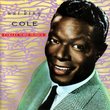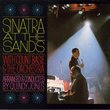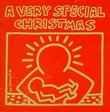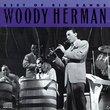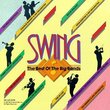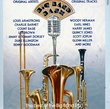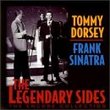| All Artists: Louis Armstrong Title: Earl & Hines 4 Members Wishing: 1 Total Copies: 0 Label: Sony Original Release Date: 8/22/1989 Re-Release Date: 8/7/1989 Genres: Jazz, Pop, Broadway & Vocalists Styles: New Orleans Jazz, Swing Jazz, Traditional Jazz & Ragtime, Dixieland, Vocal Pop, Classic Vocalists, Traditional Vocal Pop Number of Discs: 1 SwapaCD Credits: 1 UPCs: 074644514223, 074644514247 |
Search - Louis Armstrong :: Earl & Hines 4
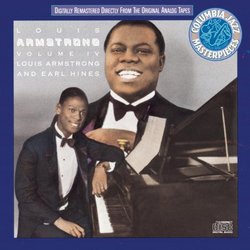 | Louis Armstrong Earl & Hines 4 Genres: Jazz, Pop, Broadway & Vocalists
Like the great pyramids at Giza or the works of Shakespeare and Bach, the music of Louis Armstrong and Earl Hines shines like some beacon of light blinking at us from beyond the veil, ancient and miraculous and inscrutable... more » |
Larger Image |
CD DetailsSynopsis
Amazon.com essential recording Like the great pyramids at Giza or the works of Shakespeare and Bach, the music of Louis Armstrong and Earl Hines shines like some beacon of light blinking at us from beyond the veil, ancient and miraculous and inscrutable in its mastery and wisdom. The trumpeter from New Orleans and the pianist from Pittsburgh recognize in each other the mark of champions, and the pleasure they take in each other's instrumental sovereignty is apparent in all their inspirational improvisations from 1928. The sense of joy these adventurers share in their spontaneous flights of exploration and discovery on "West End Blues" and "Weather Bird (Rag)" remains undiminished. King Oliver's "Weather Bird (Rag)" is taken as an equestrian duet, the phrases echoing back and forth, veering off and intermingling, creating fresh new variations like alternating pulses of a single heartbeat, orchestral in their syncopated complexity, resolving into a rousing climax that is the essence of jazz. And in a collection shot through with classic performances such as "St. James Infirmary," "Tight Like This" and "Sugar Foot Strut," "West End Blues" remains the most memorable performance in the entire Armstrong lexicon. Beginning with the remarkable rhythmic phrasing of Armstrong's opening cadenza, proceeding through his initial reading of the theme, his poignant scat chorus and a stately Hines interlude, and culminating in the clarion call of the trumpeter's 16-beat sustained cry and epic blues phrases, this is a humbling performance--like Bird's "Ko-Ko," Trane's "Giant Steps," and Sonny Rollins' "Autumn Nocturne"--that other musicians must measure themselves against. --Chip Stern Similarly Requested CDs
|
CD ReviewsThe Greatest Jazz Record Of All Time? R. J. Marsella | 01/20/1999 (5 out of 5 stars) "Louis Armstrong was the most important musician of the 20th Century and this is his most important record. The more you know about jazz the more likely you are to agree with me. This album represents one of the greatest quantum leaps in the history of art. It may sound dated now, but at the time it was revolutionary. In many ways, it still is. When we think of Louis we think of this jolly old man playing Vegas. Listen to him when he was still young, hot and influential." A Wonderful CD 07/10/2001 (5 out of 5 stars) "This was the first CD that opened me up to the genius of early Satch. I later got the full set of Hot Fives and Sevens (British Import version), which includes all of the cuts on this CD. I still love this one though, and although the overall sound quality of the Brit set is better, West End Blues is a little better on this CD. The best single CD collection of early Satch I know of." This is the one 01/11/2001 (5 out of 5 stars) "For those who watched Episode 3 of Ken Burns "Jazz," had their jaws drop to the floor when they heard "West End Blues," and said "Woowee, I gotta get that!" -- this is the one. Burns waited nearly five hours before playing an entire song without voiceovers, but he picked a great one to give the full treatment to. Supposedly, Burns' film was intended to bring more people to jazz. The sales figures on this record in the next 24-48 hours will be a leading indicator of whether the film will have that effect."
|

 Track Listings (18) - Disc #1
Track Listings (18) - Disc #1